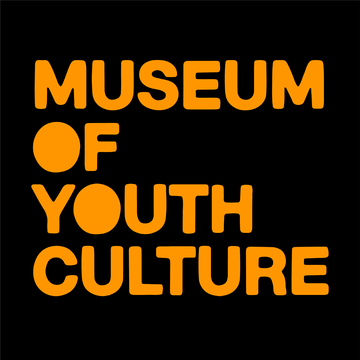
Ansar Ahmed Ullah
Ansar Ahmed Ullah was interviewed by Amal Malik for the Museum of Youth Culture, and talks about growing up in London in the 1980s, having come from Bangladesh at 15
Part of the external The Museum of Youth Culture oral history collection
About
Ansar Ahmed Ullah grew up in Bangladesh, and describes coming to the UK at 15 years old, joining his father in Luton. Ansar talks about the house music scene in London in the 1980s, and his interest and participation in the Asian underground dance music scene. He shares his experiences of living in Tower Hamlets and encountering violent racism, which propelled him to become involved in anti-racism movements.
This interview was conducted as part of the ‘Stories of South Asian Youth in Britain’ project, led by the Museum of Youth Culture. Amal Malik conducted the interview, and the full collection of project interviews is available online with the Museum. Museum of Youth Culture is the world’s first museum dedicated to the story of teenagers and young people, collecting the scenes, styles and social movements forged by youth over the last century.
Listen to Ansar talking about the Asian underground music scene in London during the mid-1980s.
Interview conducted by Amal Malik.
AM: That's really, really interesting. So, can you tell me a little bit more about that kind of underground music scene?
AA: Yeah. So, this is London, I think mid-80s. While I, and most of us, were in dance music, there were also a number of DJs or DJ friends of ours who were also, you know, playing music at parties and events. And so we...some of us like-minded young people, we formed a youth group, and we thought why not perhaps do tracks mixing or sampling Bengali or Bengali music with the dance music? Because at that time, most Bengali young people weren't really listening to Bengali music and we just wanted...we wanted them, you know, to be aware of Bengali music. And we...there was a DJ with us...well, there were a few DJs in fact, and they started, you know, creating their own tracks and music, sampling and music...mixing records and tracks from India, Pakistan, Bangladesh, which I think became known as the Asian underground scene. So, you know, I don't know if you know some of the names. Trying to think. Nitin Sawhney, Joy, Asian Dub Foundation. I'm sure if you do Google search you can find some more. So, those are the...
AM: That’s absolutely fine, yeah.
AA: Talvin Singh and stuff. They all came out of that movement. And I was, you know, like involved in some of those outfits.
For all permissions requests for audio and video clips and their transcriptions from external collections, please contact the original project or organization.
